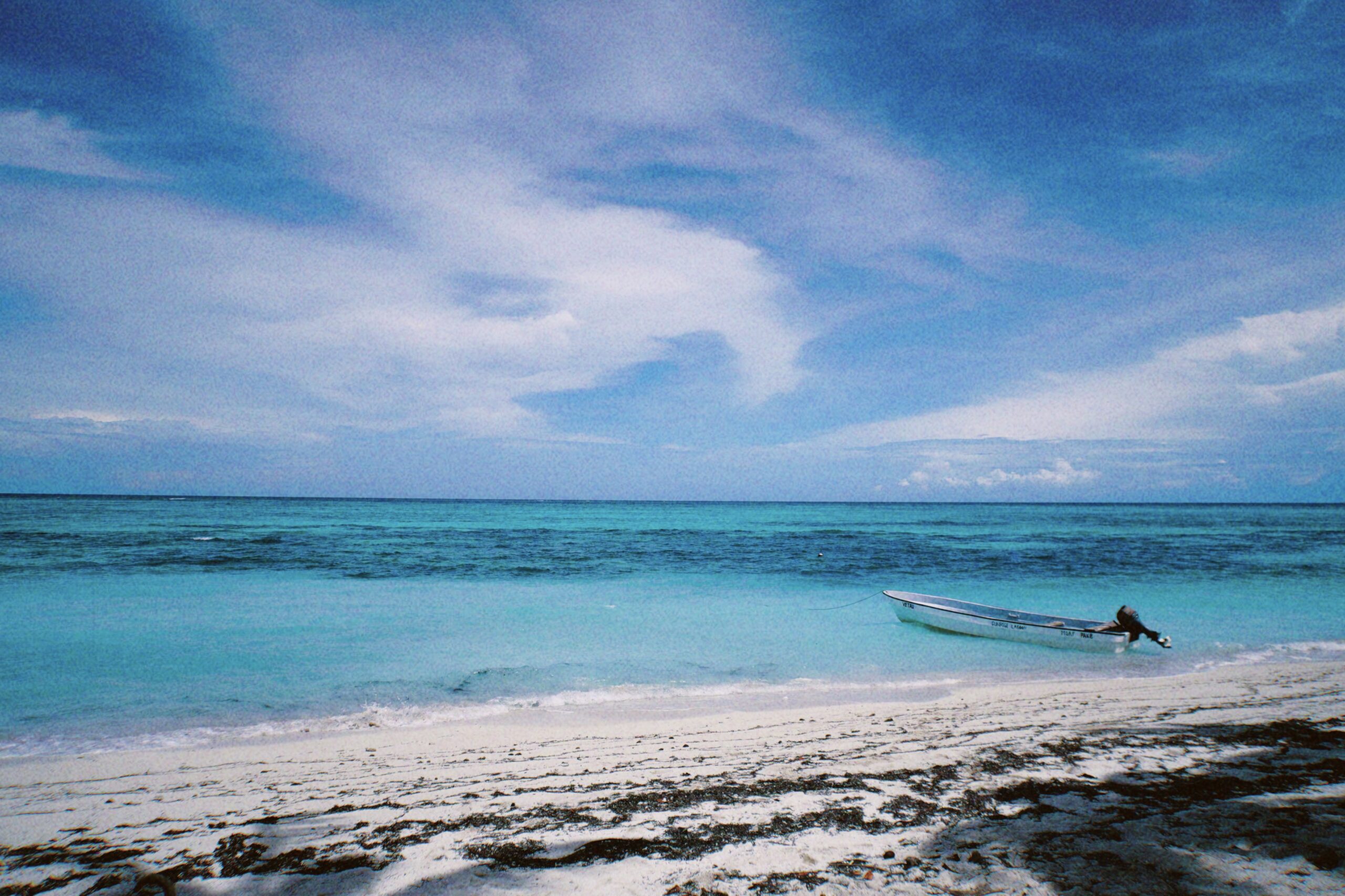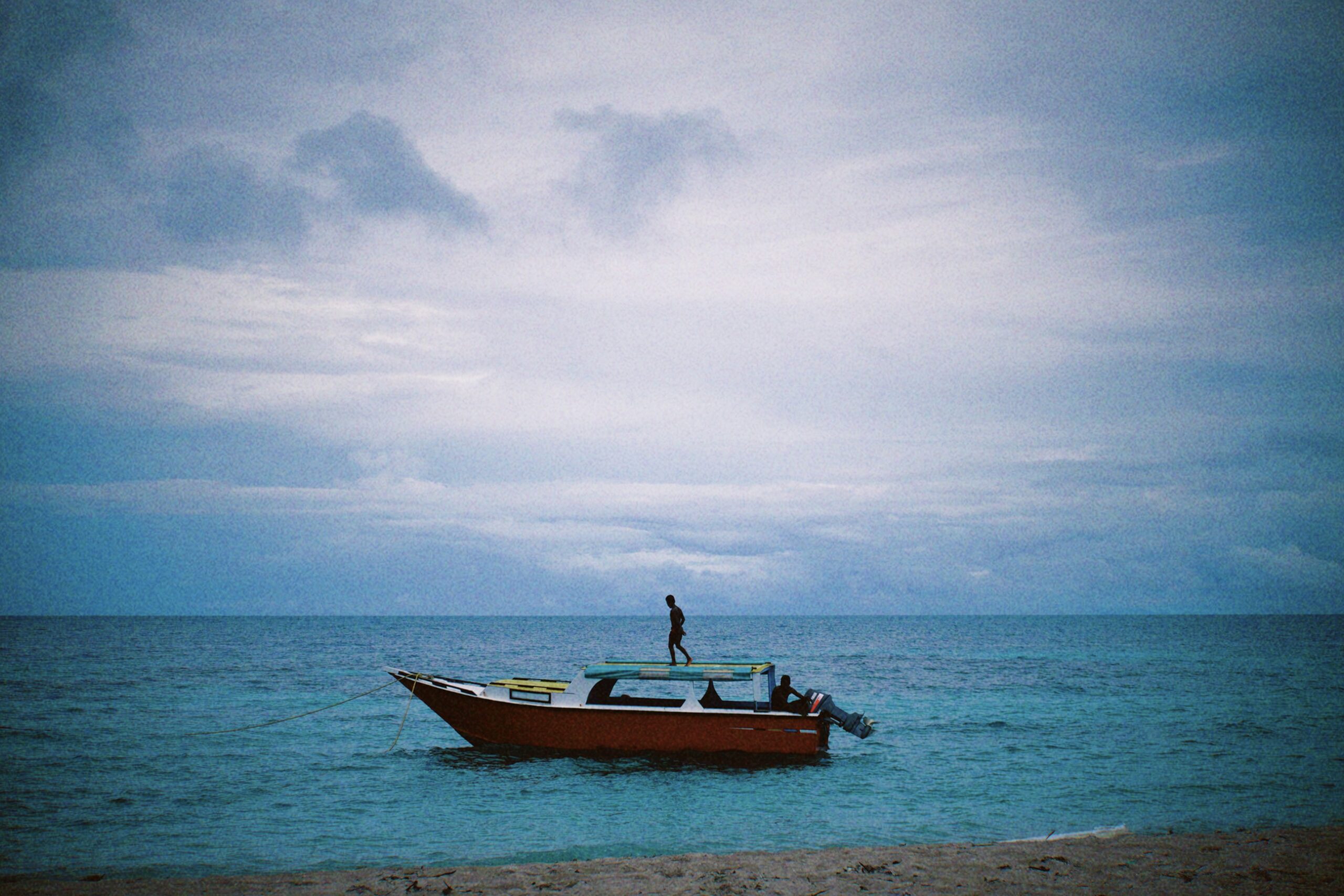I traveled through the islands of Fiji, scattered across the South Pacific.
NanuyalaiLai, Naviti, and WayaSewa.
What I saw was not the polished face of resorts, but the everyday life of the villages.
There, it didn’t matter much who had how much.
They didn’t share because they had plenty. They shared simply because they were together.
With that simple rule, the island kept turning.
It wasn’t a rule or an obligation, it was just the air you breathed if you lived there.
By midday, the voices of children echoed across the island.
They ran barefoot, fell into the sand, stood up again, and laughed.
Watching them, I felt taught that it isn’t about what you say, t’s about how you live.
When I raised my camera, they looked straight back and smiled without hesitation.
There was none of the hesitation or calculation I had grown into as an adult.
A village where the wind passes through
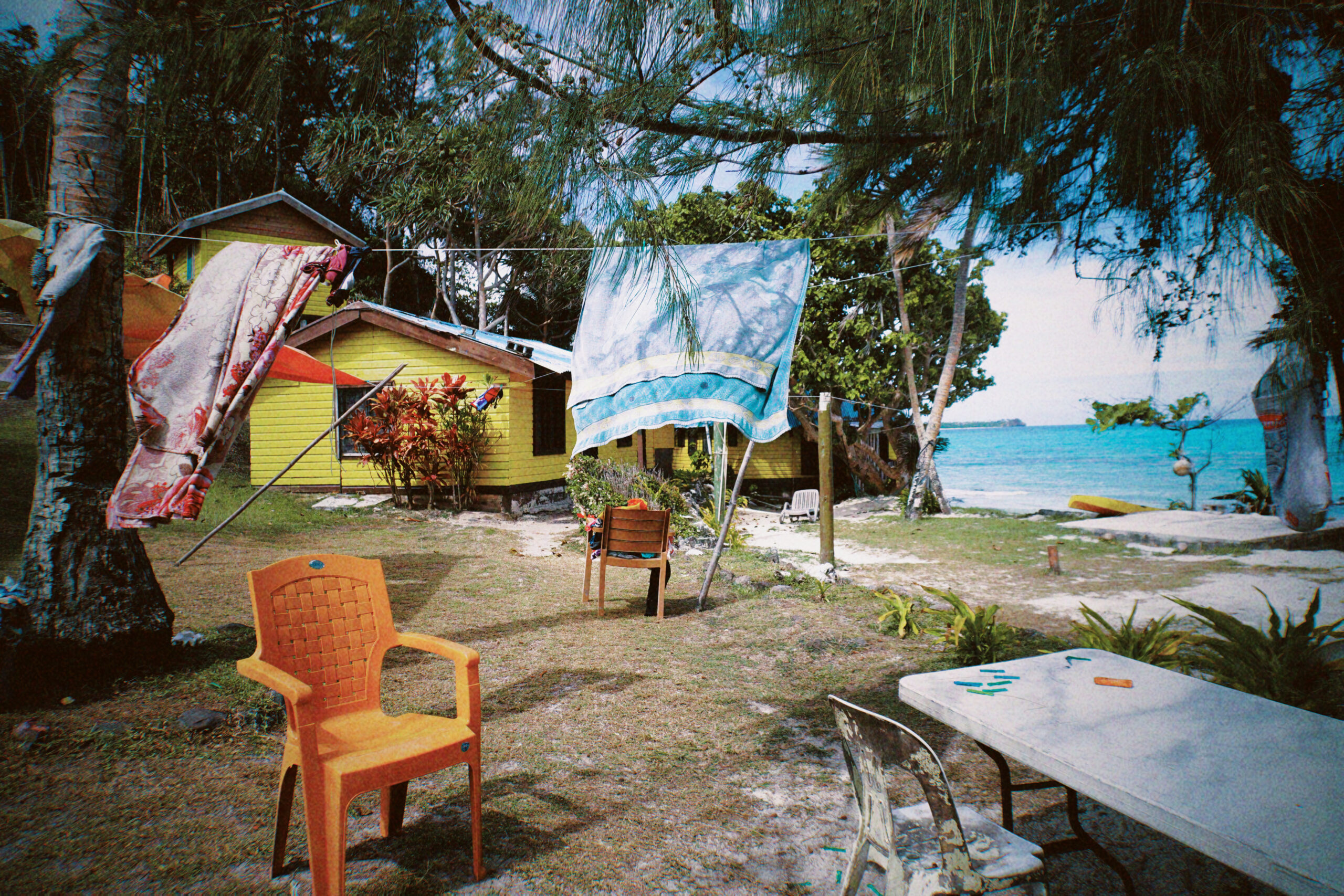
Small faces, big lights
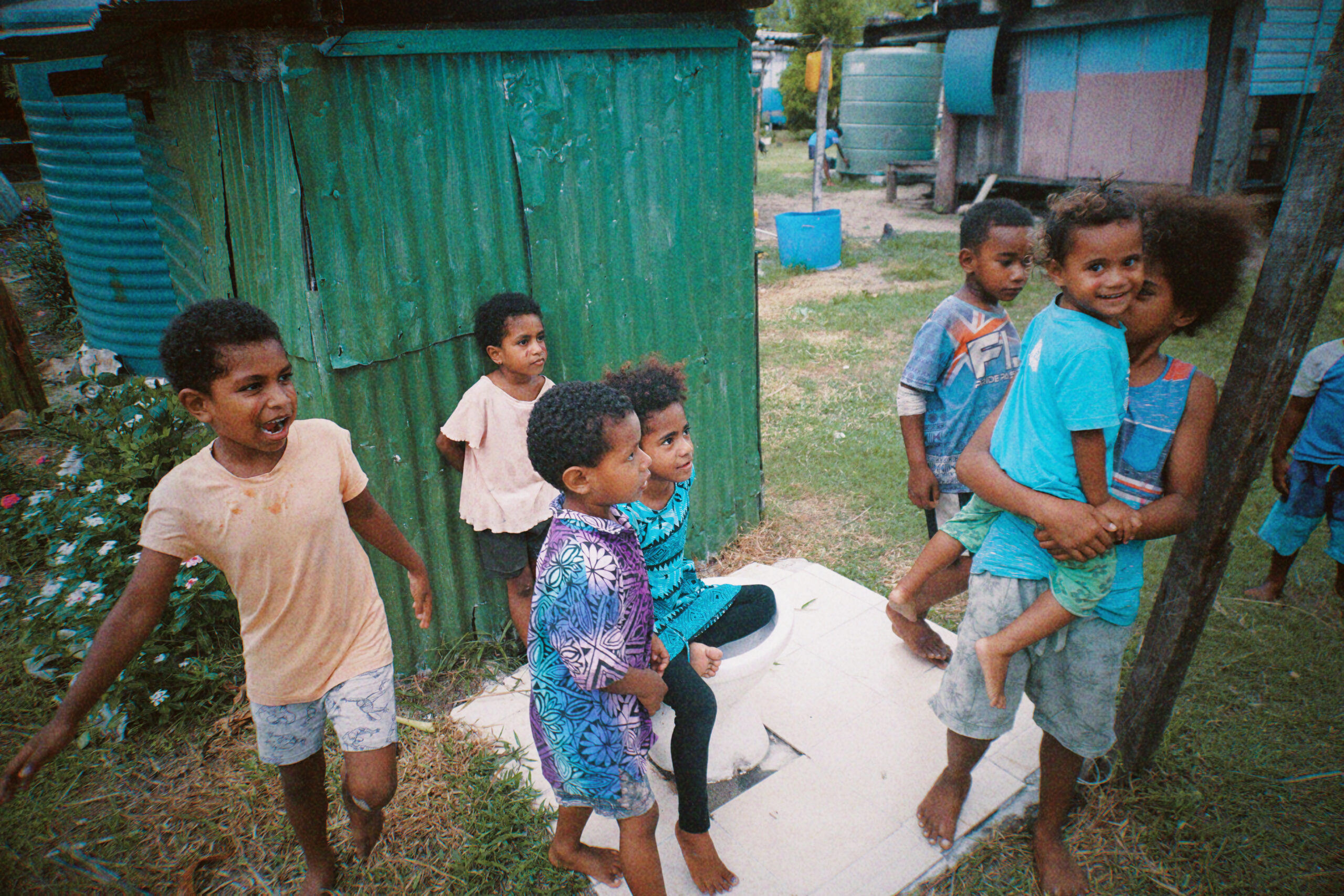
On the island, your sense of time is unmistakably thrown off.
The day moves forward whether or not you check a clock.
But unlike in the city, nothing pushes you toward the “next.”
A casual chat with someone became time itself.
Even sitting idle in the shade, a whole day passed.
There was no efficiency to be found, but strangely, nothing felt wasted.
Time wasn’t something to be “used,” but something to be “shared.”
In the village, there was no electricity, and at night the only thing to rely on was the small light of a flashlight.
A darkness that would feel unsettling in the city instead gave comfort here.
With less light, the presence of someone nearby felt stronger.
It wasn’t convenience but closeness between people that calmed the heart.
In that feeling, I realized for the first time the warmth that darkness could hold.
The night connected by Kava
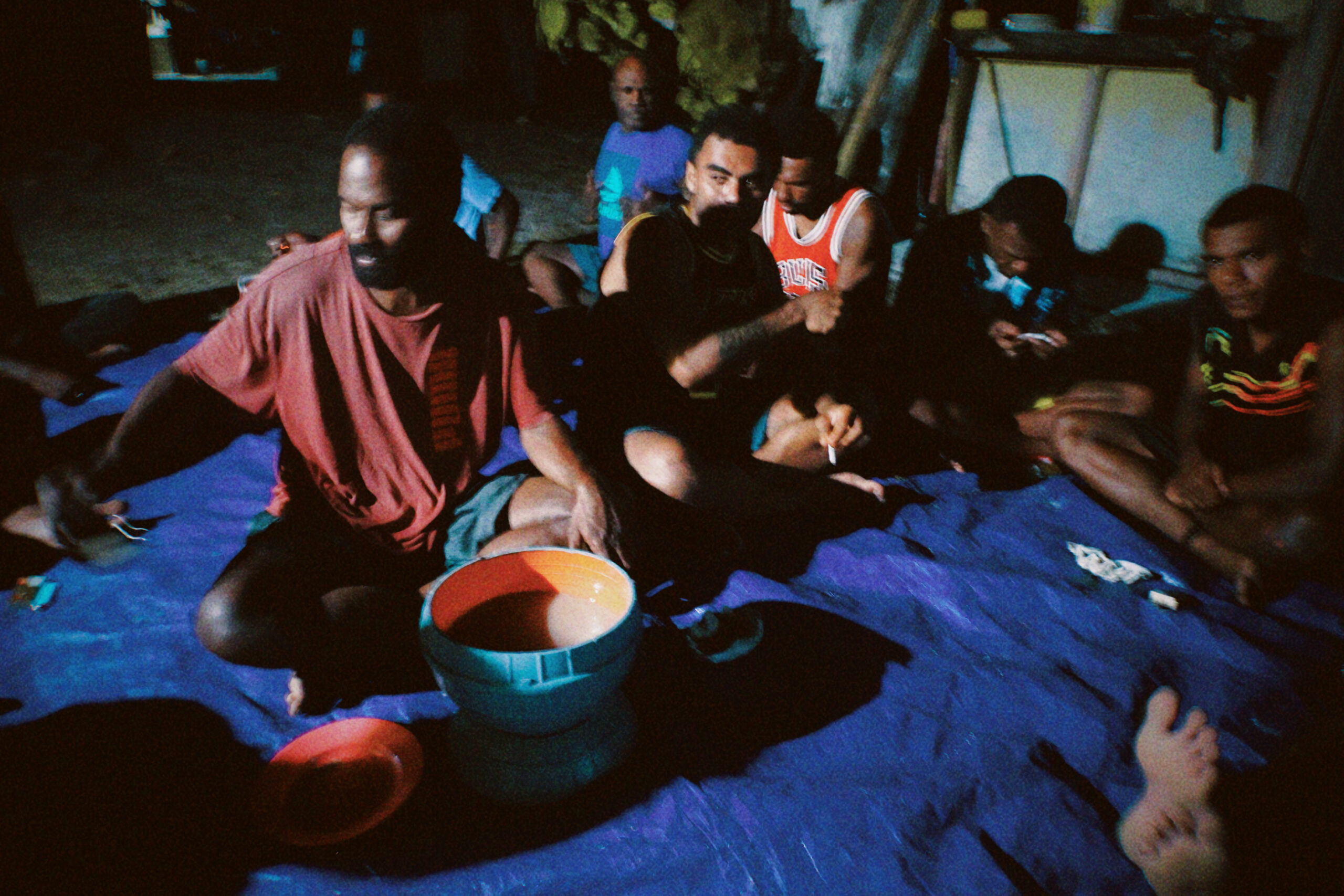
The children of the island smiled before they ever spoke.
When they fell, they didn’t cry, they stood back up and laughed again.
Watching them, I realized a smile isn’t something to explain, it is life itself.
Even when I lifted the camera, they smiled without doubt.
It wasn’t crafted, it was proof of simply being there.
Their straightforwardness made me feel as if I were the one being asked, “Are you truly living?”
Smiles in the city are often part of a role.
To smooth the atmosphere, to fit the situation.
It has its place, but it also makes you aware of the part you’re playing.
But the smiles I saw in Fiji were different.
Smiling and living were inseparable.
That truth remains with me, even long after the journey.
Coconuts and smile
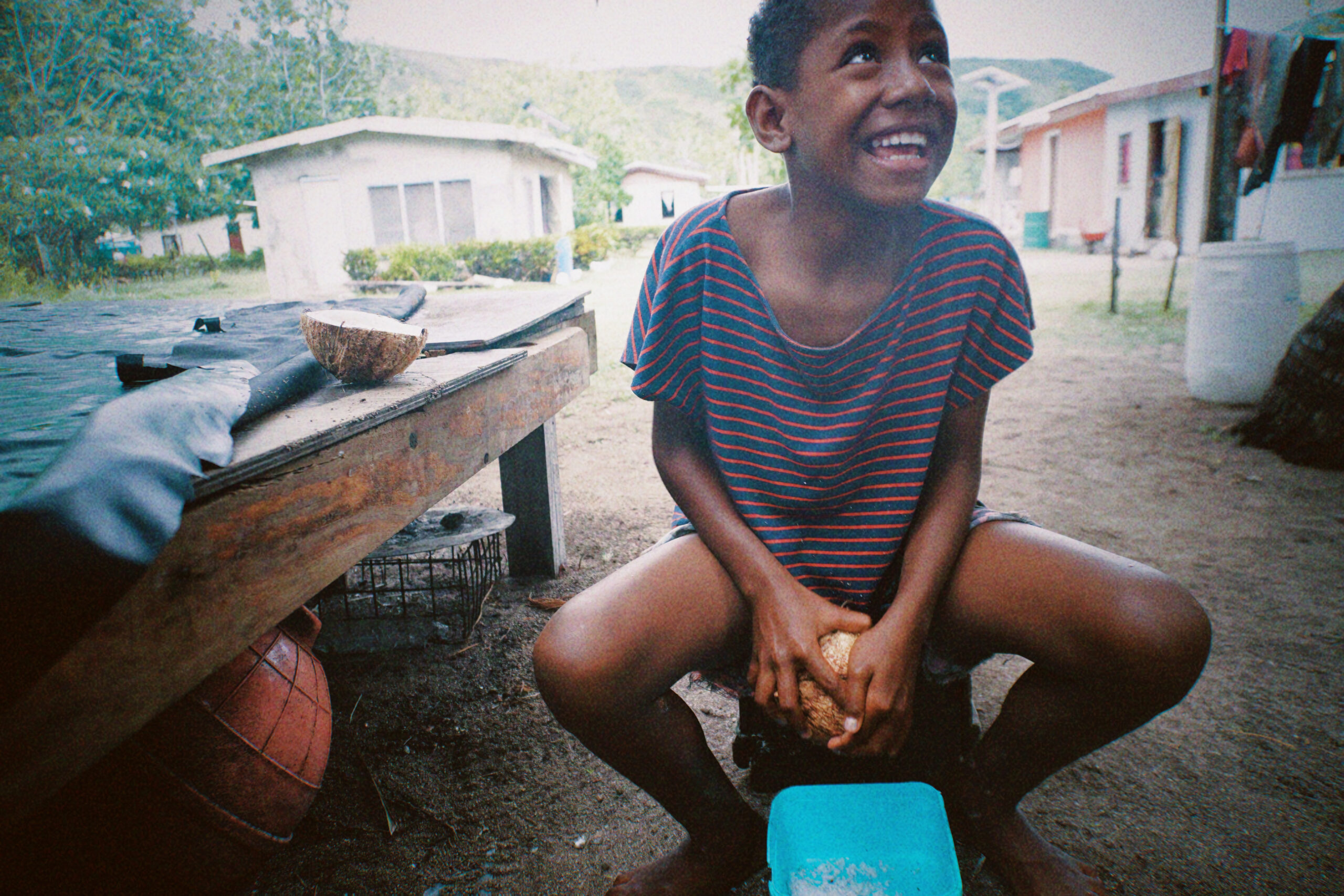
And I can’t forget what I saw at a school in Naviti.
In the corner of the schoolyard stood a large green tank.
On its side, in white letters, it read:
「From the People of Japan」
On this island, turning a tap and expecting water wasn’t a given.
Life here was supported by the rainwater collected in that tank.
It wasn’t just an object.
This presence, carried across the sea from Japan, was still alive here.
Compassion that had crossed an ocean now stood before me as daily reality.
Standing before that green tank, I understood with my body that the world is tied together by invisible lines.
A gift that crossed the sea
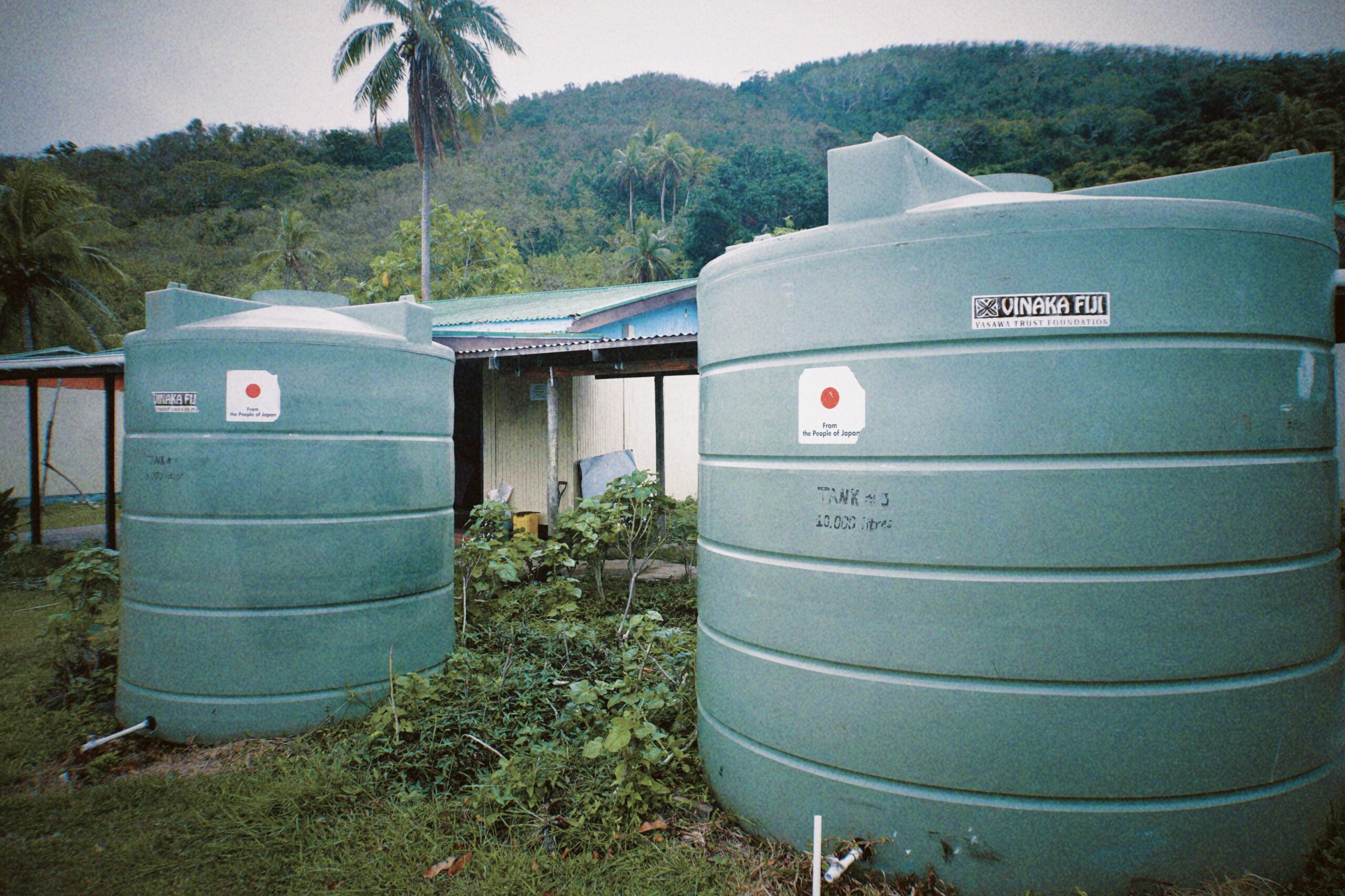
- From the People of Japan -
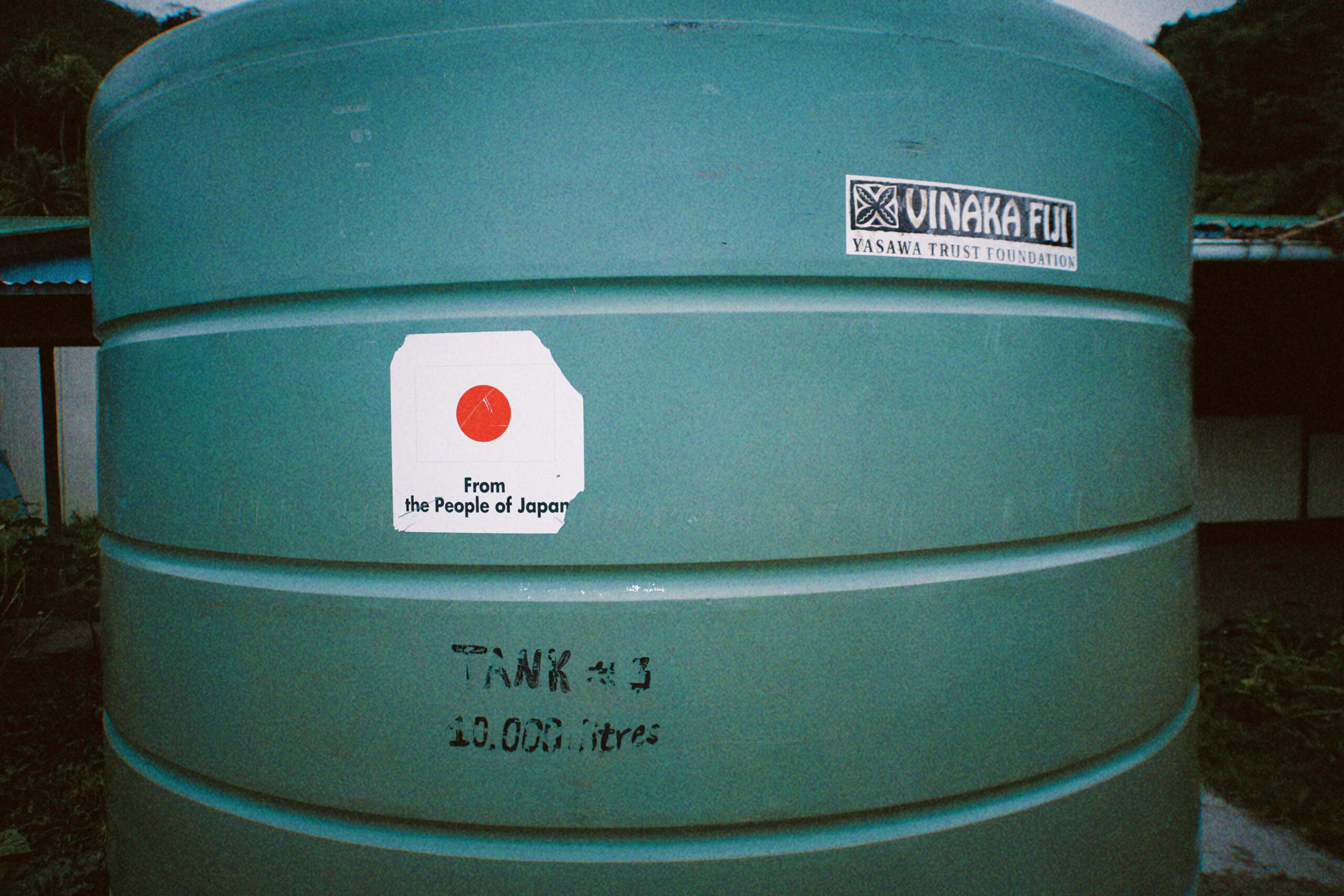
Looking back on my days in Fiji, what I recall first are those smiles, the quiet night darkness, and the green tank in the schoolyard.
Wealth isn’t measured by the amount of possessions.
It’s measured by whether you feel connected to someone.
I learned that with that alone, people can feel astonishingly fulfilled.
The words “From the People of Japan” on that tank in Naviti were not just evidence of the past.
They were a mark of support for people living now, and for children who will live tomorrow.
Standing before it, something was carved deeply into my heart.
“It’s my turn now,” I thought.
So that my presence might remain, even slightly, in someone’s life.
That wish has not faded, even after leaving the island.
Vinaka vakalevu
- Gratitude -
